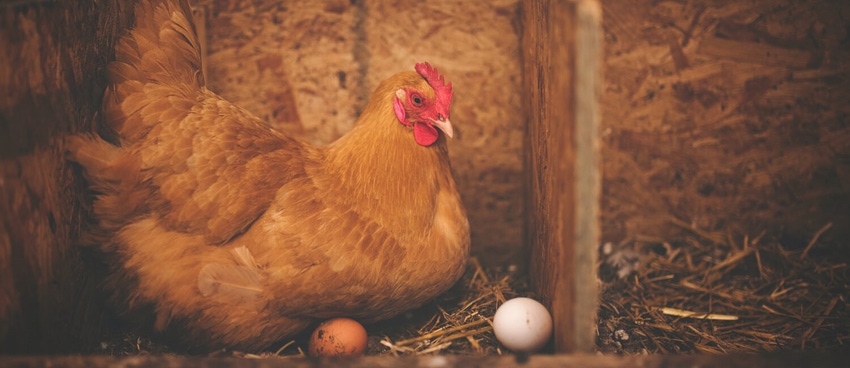Tips for keeping backyard poultry flocks offered
More people raising backyard poultry during COVID-19 pandemic, leading to increase in reported salmonella illnesses.
August 13, 2020

With the COVID-19 pandemic wearing on, many Americans have turned to raising backyard poultry — whether for food, for educational purposes or as a hobby — but the influx of new flocks has put people and their birds at risk of salmonella illness, according to the University of Pennsylvania School of Veterinary Medicine (Penn Vet).
Penn Vet reported that as of July 28, more than 938 people in 48 states have reported being infected with one of the outbreak strains of salmonella — a 22% increase from 2019 — and according to the Centers for Disease Control & Prevention, 151 people — or 33% of those with information available — were hospitalized as a result of their sickness, while 28% of the reported infections were in children younger than five years of age.
“It is a serious nationwide problem,” said Dr. Sherrill Davison, associate professor of avian medicine and pathology at Penn Vet's New Bolton Center. Davison is also Penn Vet’s lead avian flock health expert, working to manage emerging health and biosecurity issues in flocks both large and small across the country.
Since the beginning of the pandemic, Davison has seen an increase in phone calls from new flock owners looking for general management resources for their birds. She also gets calls from local veterinarians who may not be experts in avian health but need reliable information for their clients, Penn Vet said.
Based on the most recent data available from CDC, 74% of individuals sickened in 2020 have reported contact with backyard poultry. However, fear of contracting salmonella does not mean individuals should be discouraged from enjoying birds, Davison noted.
“The most important, overarching theme is to keep things around the birds clean and dry,” she said.
The primary key to healthy bird keeping is diligent hand washing. “Wash your hands with soap and water right after touching backyard poultry, their eggs or anything in the area where they live and roam. Use hand sanitizer if soap and water are not readily available,” she added.
Keep backyard poultry outside the house and especially away from areas where food is prepared, served or stored. “Keep in mind that birds carrying the bacteria can appear healthy and clean,” Davison said. “Always err to the side of caution.”
Both children and adults should have a separate pair of shoes to wear while taking care of poultry to limit any possible cross-contamination. CDC recommends that those shoes or boots be kept outside the house.
Keep the birds’ housing safe from predators like raccoons, foxes and hawks, and make sure to keep the flock away from contact with wild birds. “This includes keeping the henhouse away from wild bird feeders, which can be a source of another disease known as mycoplasma respiratory infections in flocks,” Davison added.
Keep bad eggs at bay
Eggs collected from backyard birds also need special care and attention. “Be sure to collect your eggs often, as eggs that sit in the nest for too long become dirty or break, increasing risk of infection,” Davison warned. “If you do find cracked eggs, throw them away immediately. Germs can more easily enter an egg though a cracked shell, putting you at risk.”
Collected eggs should be cleaned carefully with fine sandpaper, a brush or a cloth — but be wary of washing them too soon. “CDC advises against washing warm, fresh eggs, because colder water can pull germs into the egg,” Davison said.
Once cleaned properly, eggs should be refrigerated to prolong their freshness and slow the growth of pathogens like salmonella. When cooking eggs, be sure both the yolk and the white are firm. Egg dishes should be cooked to an internal temperature of 160°F (71°C) or hotter.
“Raw and undercooked eggs may contain salmonella bacteria that can make you sick,” Davison warned.
With proper care, backyard birds can be a safe, healthy and productive pastime. “It is just a matter of implementing simple, but appropriate, preventative practices to reduce the incidence of disease,” Davison said.
You May Also Like


